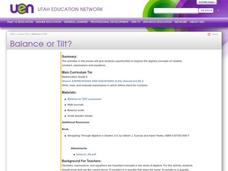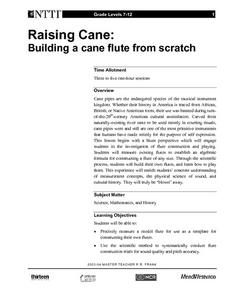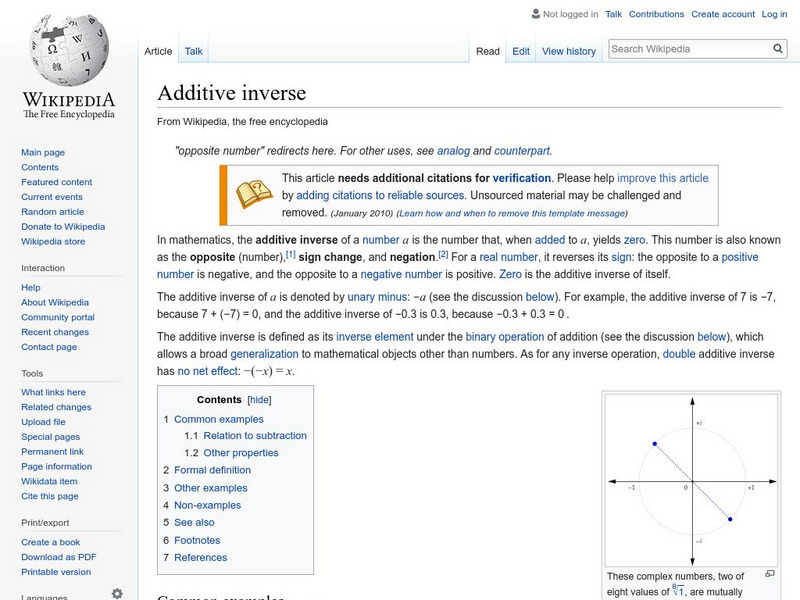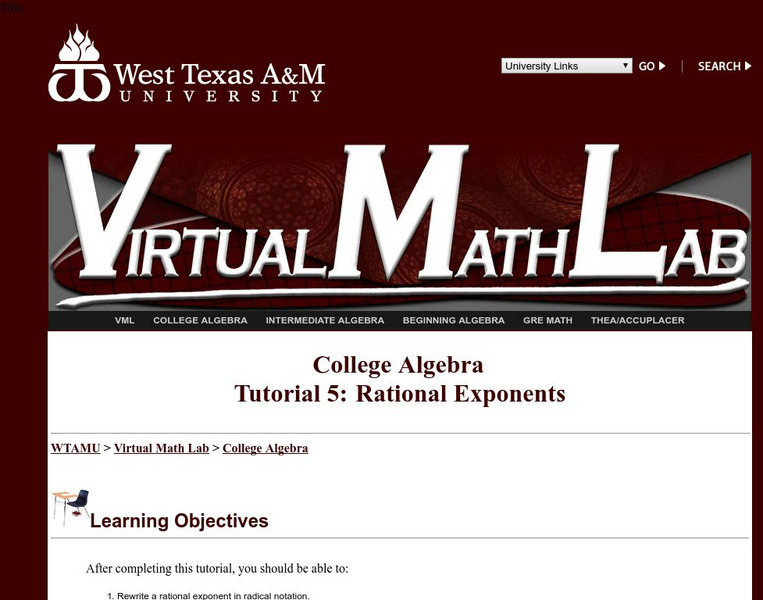Curated OER
Impossible Graphs
Learners distinguish between possible and impossible graphs of functions, and to learn why some graphs are impossible. They have practiced plotting functions on the Cartesian coordinate plane
Curated OER
Can Stack
Students are able to find the rule for summing consecutive numbers;
identify the pattern of triangular numbers. They then solve the given problem using logic and mathematical reasoning.
Curated OER
Figure This!
Second graders explore the concept of inequalities. They use the mathematical symbols =, <, > to show relationships among numbers. Students devise and use problem solving strategies to explore the situation.
Alabama Learning Exchange
Writing Word Equations
Students explore the concept of chemical formulas. For this chemical formula lesson, students watch a video about balancing chemical equations. Students conduct an experiment using silver nitrate and sodium phosphate. ...
Curated OER
Exploring Linear Equations
Eighth graders follow the teacher as they enter information into the graphing calculator. They investigate different graphs to explain the slope of a line, the y intercept, and parallel lines.
Curated OER
More or Less Pigs in the Pen
Students practice simple addition and subtraction. They identify relationships among whole numbers.
Curated OER
Rescue!
Students explore movement and position concepts. They follow directions using left , right, up, down, North, South, East and West. Students draw and follow a path on a grid to show a route followed. They label and follow legends on a map.
Curated OER
Two-Step Equations
Students explore the concept of solving two-step equations. In this solving two-step equations lesson, students watch a short video about solving equations. Students view a PowerPoint presentation about solving two-step equations....
Curated OER
Properties of Logarithms
Students explore the concept of logarithms. In this logarithms lesson, students graph logarithms on their Ti-Nspire calculator. Students describe the shapes of their graphs by identifying slope, y-intercepts, and roots. ...
Curated OER
Graphing Linear Equations - With Table
Students describe relations and graph linear functions. After studying a geometric shape and a verbal statement, students contrast the differences between the verbal statement and the picture. They determine functions and graph...
Curated OER
Limits
In this limit worksheet, students evaluate functions and determine the limits of the function. This one-page worksheet contains 10 problems.
Curated OER
Related Number Pairs
Third graders use tables to organize and display related pairs of numbers, such as the relationship of the number of insects to the total number of legs. They generate a table of related number pairs based on a real-life situation,...
Curated OER
Scientific Notation
Students observe the teacher writing numbers and determine the rules for scientific notation. After explanations, they perform operations on numbers in scientific nation and discuss reasons for using this method of writing numbers and...
Curated OER
Patterns That Grow
Students investigate growing patterns. In this additive patterns lesson, students analyze the core of growing patterns. Students extend additive patterns based on the core.
Curated OER
Population: Logistically Speaking
For this population worksheet, students read word problems relating to population growth. They write the problem as a differential equation, create models and graphs of the solution. This three-page worksheet contains 10 multi-step...
Curated OER
Equality For All
Young scholars complete worksheets on equality in math and create their own. They further investigate equality in the world around them.
Curated OER
Studying Living Organisms
Students discover and discuss the differences between prokaryotes and eukaryotes. Using a microscope, they examine various prepared slides of prokaryotic and eukaryotic organisms.
Curated OER
Raising Cane: Building a Cane Flute From Scratch
Eighth graders create their own cane flute. They use a model flute to gain the correct measurements and use the scientific method to construct the flute to have sound quality and pitch accuracy.
Wyzant
Wyzant: What Is Simplifying?
This site from WyzAnt explores what simplifying is, as well as how to simplify a variety of algebraic equations. Content focuses on simplifying multiple signs, combining like terms, simplifying multiplication, distributing a number or...
Oswego City School District
Regents Exam Prep Center: Factoring
From pulling out the common factors of a polynomial to giving hints on how to factor a trinomial that does not have a leading coefficient of 1, a comprehensive tutorial for factoring polynomials is given as well as practice, interactive...
Wikimedia
Wikipedia: Additive Inverse
What is additive inverse? It means "opposite." Find out more about this concept in this detailed definition with examples and links to related terms.
Alabama Learning Exchange
Alex: Imaginary Numbers? What Do You Mean Imaginary?
Is it any wonder that students are suspicious? We lead, sometimes drag, them through Algebra I insisting they must follow the order of operations. We make them learn the "hard way" of doing an assignment one day only to show them the...
Texas A&M University
Wtamu Virtual Math Lab: College Algebra: Rational Exponents
In this tutorial, you will learn what a rational exponent is and how to complete many tasks involving them. Follow step-by-step instructions and examples, view video explanations, and hone your skills with several practice problems.























